
A session at the ACCC annual meeting addressed some of the top reimbursement issues associated with clinical trials and some strategies for how to manage them.

Your AI-Trained Oncology Knowledge Connection!


A session at the ACCC annual meeting addressed some of the top reimbursement issues associated with clinical trials and some strategies for how to manage them.

In 2011, the American College of Surgeons Commission on Cancer announced several new patient-centered standards that were designed to ensure that key elements of quality cancer care are provided to every person with cancer treated at an accredited facility.

In a session at the ACCC 40th Annual National Meeting, panel members offered advice for smaller practices who want to create multidisciplinary teams but who might not have financial or C-suite support.

Nonsentinel lymph node status in melanoma patients who underwent complete lymph node dissection after positive sentinel lymph node biopsy had independent prognostic value.
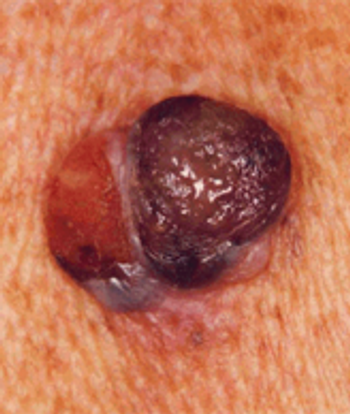
In a recent study, survivors of either an invasive or in situ melanoma had about five times the risk for a second primary melanoma compared with the general population.
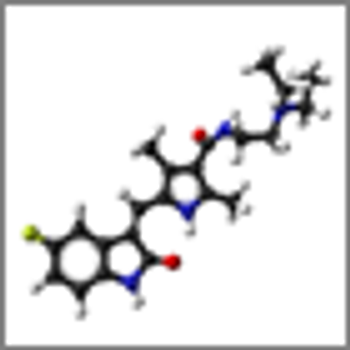
Patients receiving treatment with sunitinib for advanced renal cell carcinoma experienced worse treatment-related fatigue during the first cycle of treatment with symptoms lessening after subsequent consecutive cycles.

A history of significant cigarette smoking adversely affected overall survival in patients who underwent surgery for clear-cell renal cell carcinoma, according to the results of a recent study.
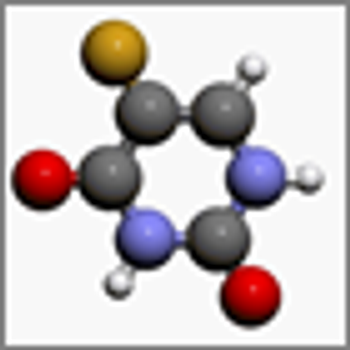
Current evidence suggests that only four DPYD and TYMS variants should make up the panel of genetic biomarkers for testing for toxicity to capecitabine monotherapy, according to the results of a recent study.

The use of full-spectrum colonoscopy significantly decreased the number of adenomas missed during an examination compared with the use of forward-viewing colonoscopy, according to the results of an international, multicenter study.
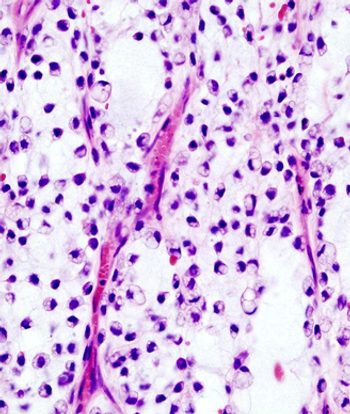
The use of preoperative radiotherapy may be a reasonable approach to patients with borderline resectable soft-tissue sarcomas, according to the results of a retrospective study.
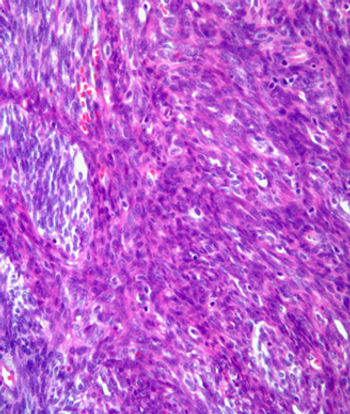
Single patients with soft-tissue sarcoma of the extremities had worse overall survival and were less likely to undergo several important treatment options compared with their married counterparts, according to results of a recent study.

The combination of bortezomib, lenalidomide, and dexamethasone resulted in a partial response or better in more than 60% of patients with relapsed or refractory multiple myeloma, according to results of a phase II trial.

Results of a large meta-analysis indicated that treatment with lenalidomide for newly diagnosed multiple myeloma was associated with an increased risk for developing secondary hematologic malignancies.
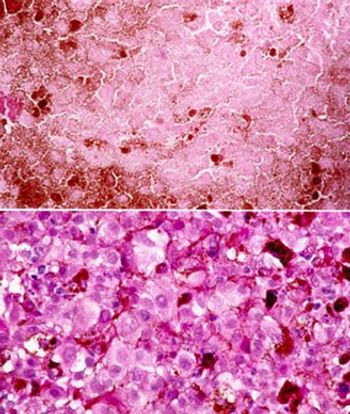
The anti-programmed death 1 (PD-1) drug nivolumab may increase overall survival in patients with advanced melanoma with a safe and acceptable long-term safety profile, according to the results of a recent study.

A recent exploratory study found that GIST cells showed unexpected sensitivity to certain kinds of chemotherapy drugs not typically associated with the diseases’ treatment.

The results of a retrospective study indicated that patients with metastatic GIST who are able to achieve complete macroscopic surgical resection of their disease may be able to achieve long-term survival.
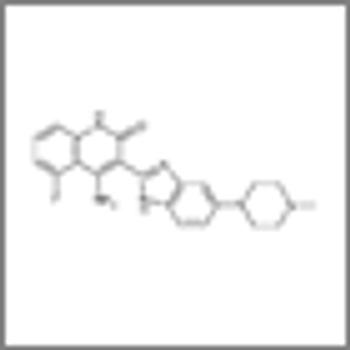
The FGF inhibitor dovitinib failed to improve progression-free survival outcomes as a third-line treatment for patients with metastatic renal cell carcinoma compared with sorafenib, according to the results of a new study.
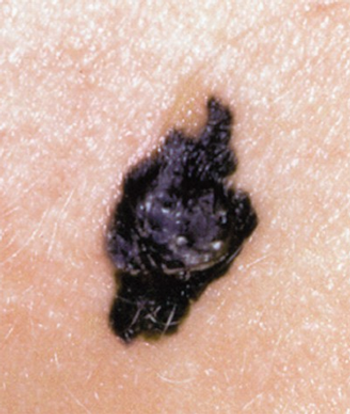
Sentinel-node biopsy for patients with intermediate-thickness melanomas increased disease-free survival and, in patients positive for nodal metastases, disease-specific survival, according to the final data from the MSLT-I study.

New research shows that tumors found in obese patients may be more indolent than those in nonobese patients, and this may, in part, be related to alterations in fatty acid metabolism explaining the obesity paradox in clear-cell renal cell carcinoma.

The preoperative diagnosis of combined gastric gastrointestinal stromal tumor (GIST) and gastric cancer is often missed, according to the results of a recent study.

Proteomic cyst fluid mucin profiling may serve as an accurate diagnostic tool for the identification of pancreatic cancer precursor lesions, according to the results of a recently published study.

Using two new diagnostic panels based on microRNA in whole blood, researchers were able to distinguish patients with pancreatic cancer from healthy control patients.
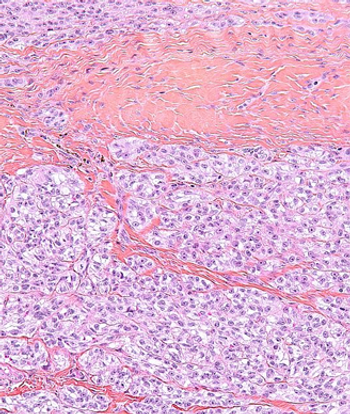
Researchers have identified several characteristics of long-term responders to pazopanib in patients with advanced soft-tissue sarcomas, including having a normal hemoglobin level at baseline.

Patients with retroperitoneal sarcomas who are unable to obtain complete resection after initial resection are left with few treatment options for palliative therapy, according to the results of a recent study.

Scientists have discovered that the injection of an engineered virus into triple-negative breast cancer cells may allow the cancers to be treated with therapeutic radioiodine, a treatment traditionally used to treat thyroid cancers.

Results from a phase I/II trial indicate that carfilzomib may be a safe and effective substitute for bortezomib in multiple myeloma patients whose disease progressed during treatment with a bortezomib-containing regimen.
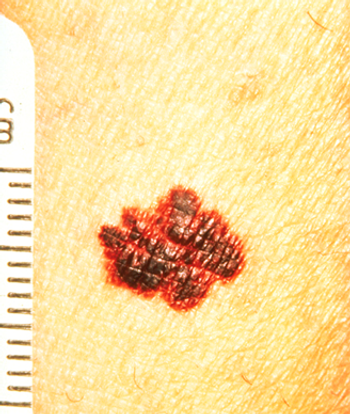
A new study found that a targeted screening and education strategy aimed at patients at high-risk for melanoma favorably affected behaviors that may reduce melanoma risk compared with a standard information-based campaign.

More than one-third of African American patients with monoclonal gammopathy of undetermined significance or multiple myeloma were found to have an inherited risk factor for the disease, according to the results of a European study.
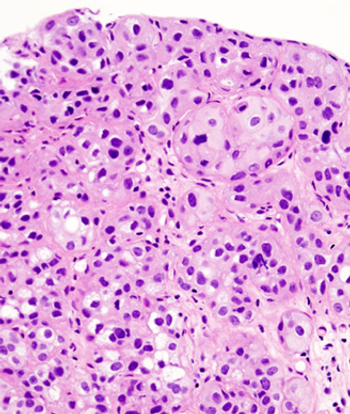
A new study found that induction bladder-conserving treatment was safe in patients with muscle-invasive bladder cancer who achieved only a near-complete response.
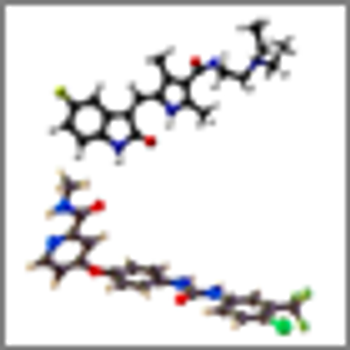
The order of the sequencing of sorafenib and sunitinib for first-line and second-line therapy did not affect progression-free and overall survival for patients with advanced renal cell carcinoma.